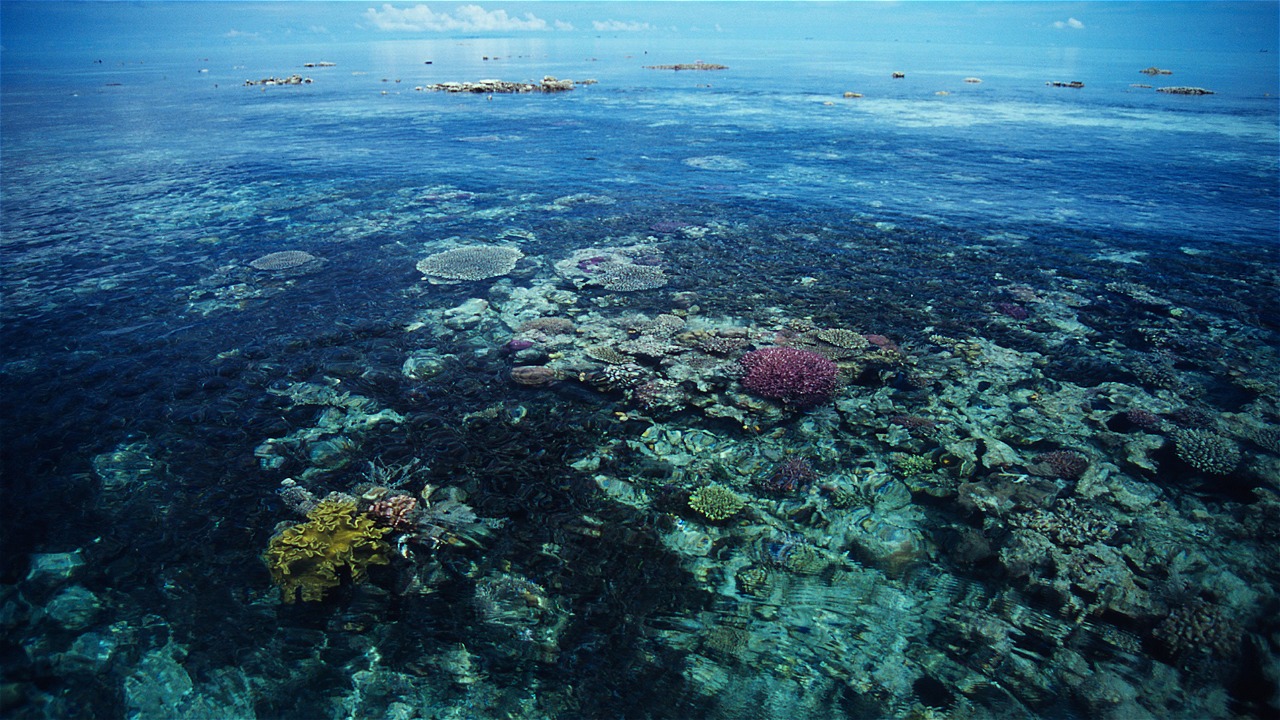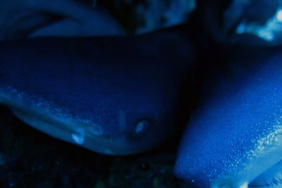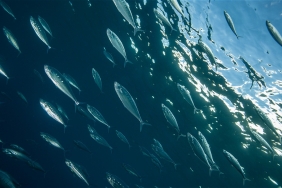NEW SOLUTIONS PROMISE TO IMPROVE BELEAGUERED CORAL TRIANGLE SEAFOOD TRADE
The recommended solutions include: creating enabling conditions for more effective fisheries data exchange between demand and supply countries—crucial for combating illegal, unreported, and unregulated fishing; adopting and testing the International Standard for the Trade in Live Reef Fish Food—a set of voluntary standards for producing responsibly-caught seafood products; and creating a public-private Roundtable on Sustainable Live Reef Fish Food Trade in which market economies, including mainland China, agreed to participate.
The three-day workshop, which concluded today, saw experts from relevant sectors of the live reef fish food industry sharing experiences and best practices in fisheries management, scaling-up successes and lessons learned, and discussing available market-based opportunities to help bring the trade towards a more sustainable path.
“This workshop created an effective solutions-based platform for deeper levels of engagement among all actors in the seafood supply chain by helping connect the dots between responsible suppliers and buyers and address the gaps, both on policy and operational levels, in the sustainable management of the live reef fish food trade in the Coral Triangle,” says Dr Geoffrey Muldoon, Live Reef Fish Food Trade Strategy Leader of the WWF Coral Triangle Program.
The trade in live reef fish food is one of the most widespread and lucrative industries in the Coral Triangle but has also become one of the biggest threats to coastal and marine environments.
Impacts arising from overfishing and the use of destructive fishing practices, fueled by an ever-increasing demand for seafood and the lack of effective management systems, have posed major challenges to the sustainability of this trade on which thousands of businesses and livelihoods depend.
Previous data suggest that the global live reef fish food market was worth approximately USD 800 million to USD 1 billion at the point of sale; with 30,000 tons of live reef fish food traded globally per year from 1999 to 2002. Updating the figures for volume and retail value using the same assumptions suggests that the trade is now estimated closer to USD 2 billion.
The lack of current data, however, has impeded the accurate assessment of the trade, highlighting the urgent need to have more effective data exchange systems in place.
Recognizing the need to stay ahead of the curve for long-term survival, private sector forerunners such as Pulau Mas UD—an Indonesian fishing company that accounts for more than 30% of Indonesia’s wild live reef fish exports—have been adopting responsible fishing practices and policies as a response to the growing demand for more sustainable seafood. Pulau Mas is one of the first fishing companies to commit to testing the International Standard for the Trade in Life Reef Fish Food, in hopes of further strengthening its market standing as provider of high-quality seafood.
The International Standard will likewise help strengthen Peninsular Malaysia’s live reef fish food industry and will be used as a foundation for building a reef fish cage culture association—a move that will ensure the industry’s sustainability.
From the retail side, global hotel chain Marriot is looking to purchase more responsibly-caught seafood in the coming years. Fifty percent of Marriot’s seafood products currently comes from sustainable sources and is expected to increase to as much as 70 percent by end of the year, worldwide.
“Each part of the seafood supply chain seems to be moving forward together, some at a much faster pace than the others, but ultimately towards the same direction. Now is the time to start working in more concerted ways and taking leverage from each other’s efforts to bring about collaborative results,” says Dr Muldoon.
“It is important for all sectors to keep up the momentum of this workshop and take the recommendations forward in the Roundtable on Sustainable Live Reef Fish Food Trade,” adds Dr Muldoon.
“The sustainable management of the live reef fish food trade in this region and the marine resources on which it depends is directly linked to the future of coastal communities and their ability to rise above poverty. One cannot be addressed without the other,” says Mr Saut Hutagalung, Project Overseer; Director Foreign Market Development, Directorate General of Fisheries Product Processing and Marketing of the Ministry of Marine Affairs and Fisheries of Indonesia.
“For archipelagic countries like Indonesia, whose people mainly depend on the gifts of the sea for food and income, managing such resources is necessary to ensure the welfare of future generations,” adds Mr Hutagalung.
The workshop was co-organized by WWF and the Ministry of Marine Affairs and Fisheries of Indonesia (MMAF) and supported by the Asia Pacific Economic Cooperation (APEC).
ENDS
-----------------
Editors note:
- The Coral Triangle—the nursery of the seas—is the world’s center of marine life, encompassing around 6 million sq km of ocean across six countries in Asia-Pacific – Indonesia, Malaysia, Papua New Guinea, Philippines, Solomon Islands, and Timor-Leste.
- It is home to 76% of the world’s known coral species, 37% of the world’s coral reef fish species, and commercially-valuable species such as tuna, whales, dolphins, rays, sharks, including 6 of the world’s 7 known species of marine turtles.
- The Coral Triangle directly sustains the lives of more than 120 million people and contains key spawning and nursery grounds for tuna. Its reef and coastal systems also underpin a growing tourism sector.
- WWF is working with governments, local communities, businesses, and consumers to promote sustainable development in this region. For information on Coral Triangle go to: www.panda.org/coraltriangle
- For more details of the event, go to: http://wwf.panda.org/coraltriangle/livereeffoodfishtradeworkshop
For further information:
Paolo Mangahas, Communications Manager, WWF Coral Triangle Programme, +60136730413, Email: pmangahas@wwf.org.my
Aulia Rahman, Media Officer Marine Programme, WWF-Indonesia, Tel: +62 (0) 8113616341, Email: arahman(at)wwf.or.id





